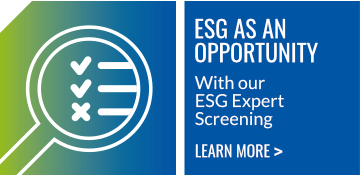FAQs at a glance
What is the EU Omnibus Initiative and why is it relevant for your company?
The EU Omnibus Initiative is a package of proposals from the European Commission aimed at adjusting several ESG regulations, including the CSRD. For many SMEs, this could mean no longer being legally required to report on ESG — but at the same time, increasing demands from banks, customers, and supply chain partners who still expect ESG data.
Which companies are still affected by the CSRD under the Omnibus Initiative?
Due to the proposed adjustments to the CSRD size criteria (with a likely threshold of 1,000 employees), fewer SMEs would be directly subject to reporting requirements in the future. However, indirect obligations remain — for example, through ESG data requests from large corporate clients or financial partners.
What is the VSME Standard?
VSME (Voluntary Sustainability Reporting Standard for non-listed SMEs) is a voluntary reporting standard for SMEs, developed by EFRAG in collaboration with stakeholders. It is based on the ESRS but is significantly simpler to apply — offering a structured and credible approach to ESG reporting without being legally required.
Why should companies report voluntarily under the VSME if they are no longer subject to the CSRD?
Even without a legal reporting obligation, banks, customers, insurers, and investors are increasingly expecting ESG transparency. The VSME helps you meet these expectations efficiently and in a standardized way — without excessive bureaucracy. It strengthens your competitiveness, access to financing, and overall credibility.
What concrete benefits does ESG reporting based on the VSME standard provide?
- Improved market opportunities with ESG-focused clients
- Access to sustainable financing and better loan terms
- Structured and systematic sustainability management within the company
- Avoidance of individual questionnaires from customers or banks through the “Value Chain Cap”
- Early risk detection and targeted control of measures
Is the VSME future-proof and internationally recognised?
Yes. The VSME is aligned with the official ESRS and supported by the European Commission. It offers a compatible solution for companies looking to prepare for future regulatory developments or the requirements of their business partners.
How can ESG.DNA support my company with VSME reporting?
With ESG Starboard VSME, we offer a digital solution that guides you through the entire VSME standard – including materiality analysis, text templates, AI assistance, and an export function for your ESG report. Our experts are also available to support you personally, if required.
How long does it take to prepare a VSME report?
Depending on the availability of data and internal resources, the initial report can take anywhere from a few weeks to a few months. Based on our experience, subsequent reports are typically completed much faster. With the Starboard digital tools and our expert support, you can save significant time compared to conventional consulting services.
What does it cost to prepare a VSME report with ESG.DNA?
Our pricing model is tailored to the specific needs of small and medium-sized enterprises. We would be happy to provide detailed information and a personalised offer in a one-on-one consultation.
. Is VSME reporting also relevant for leasing companies or financial service providers?
Yes. Institutions that rely on refinancing are under increasing pressure from their banks to provide robust ESG data. Our ESG Starboard Leasing solution offers a structured and efficient approach to ESG reporting and climate accounting – even for industries that are not typically production-based.
Is the Starboard ESG solution recognised by auditing firms?
Yes, it was developed in collaboration with an auditing firm.
Where is company data stored, and how is data access secured?
The solution is hosted in the Microsoft Azure Cloud, which meets the highest security standards and is fully compliant with the General Data Protection Regulation (GDPR). This ensures that companies benefit from a reliable, secure, and legally compliant platform for their sustainability reporting. A cloud-based solution within the EU offers flexibility, scalability, global accessibility, and reduced IT costs. Companies can access their data and generate reports at any time, regardless of location. The software is regularly updated and maintained to ensure the highest standards of security and performance.
Can organisational structures also be represented?
Yes. ESG.DNA Starboard supports the mapping of complex corporate structures, including subsidiaries, branches, and locations. These structures are accurately reflected in the resulting sustainability report, ensuring transparency and consistency across the organisation.
Can the solution be used by teams?
Yes. The software includes collaborative features that enhance communication and coordination within the organisation. It allows an unlimited number of users to be added, enabling teams to work together efficiently. Additionally, it supports dedicated access for auditors, ensuring secure data access, transparent collaboration, and a smooth audit process.
Does the solution use AI features?
Yes, artificial intelligence helps analyse data more quickly and accurately. AI is particularly used to support the double materiality analysis and the creation of the sustainability report, making these processes significantly more efficient.
What is the double materiality analysis and why is it important?
The double materiality analysis evaluates both the impact of sustainability topics on the company (“financial materiality”) and the company’s impact on the environment and people (“impact materiality”). It takes into account both financial and non-financial aspects of sustainability and plays a key role in identifying and assessing a company’s individual sustainability topics.
How intuitive is the tool to use?
The digital solution features a user-friendly interface, step-by-step guidance to help users reach the required results, and a wide range of helpful explanations and tips throughout the process.
Is the number of users limited?
No, Starboard ESG allows an unlimited number of users to be added—without affecting licensing costs, as is often the case with other software products. This gives companies the freedom to assemble a dedicated sustainability team that can work collaboratively within the Starboard platform.
The solution includes a user and permissions management system, enabling administrators to easily and transparently set up and manage access.
Is a double materiality analysis mandatory if a company only wants to report according to VSME?
No, it is not mandatory. The ESG Starboard VSME solution includes the double materiality analysis as an optional feature. While it offers significant added value for preparing the sustainability report, it is entirely up to each company whether or not to make use of this option.
Company
Erheben, sammeln und verwalten Sie Ihre eigenen Nachhaltigkeitsdaten übersichtlich, systematisch und einfach mit ESG.DNA Starboard. Erfüllen Sie die Informationsbedürfnisse Ihrer Stakeholder wie öffentliche Institutionen (Berichtspflichten), Kunden, Lieferanten, Mitarbeitende und Finanzpartner. Nutzen Sie diese als wichtige Bausteine für die Entwicklung Ihrer Geschäftsstrategien und das Nachhaltigkeitsmanagement Ihres Unternehmens.
Financial sector
With the ESG.DNA Starboard tools, you can actively support your clients in effectively implementing the new ESG requirements and preparing for future challenges in sustainability management and ESG reporting.
Consultant/auditor
Nachhaltigkeitsaspekte sind in der Finanzbranche zu einem essenziellen Bestandteil der Kundenbeziehungen geworden. Aufgrund ihrer eigenen regulatorischen Vorgaben sind Banken und Kreditgeber gefordert, die Nachhaltigkeit ihrer an Unternehmenskunden zu beurteilen und dabei insbesondere die physischen Risiken und Transitionsrisiken zu evaluieren.
Mit den ESG.DNA Starboard-Tools erweitern Sie Ihr Portfolio um State-of-the-art-SaaS-Lösungen für Ihre Kunden und bieten diesen pragmatische Werkzeuge, mit denen dies ihre ESG-Daten transparent darstellen und den Unternehmen Nachhaltigkeitsrisiken und -chancen verdeutlichen können.



